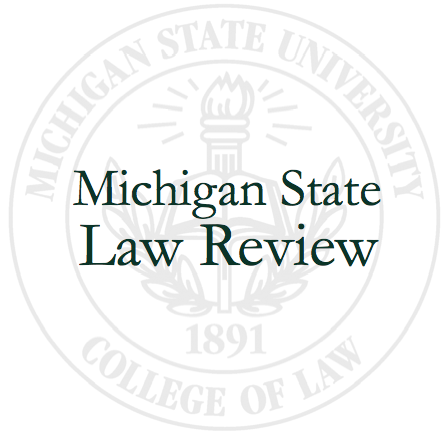Financing a Judicial Election: A Candidate’s Right to Free Speech
By: Katie Sieber
This coming week, the Supreme Court will hear arguments on whether the First Amendment permits states to prohibit judicial candidates from directly soliciting campaign funds. States are divided over whether a candidate for judicial office is permitted to solicit campaign funds directly. Currently over half of the states that have some form of judicial elections have adopted the American Bar Association’s Model Rule that prohibits candidates from soliciting campaign contributions. Because thirty-nine of the states have some elections for the judiciary, the Supreme Court’s ruling in this case will have a significant effect on judicial candidates across the country. The current ABA Model Rule’s prohibition inhibits a candidate’s ability to gain name recognition through campaigning for funds, impairs the candidate’s ability to raise funds, and makes it more difficult for the candidate to run a successful campaign.
The Supreme Court has expanded the First Amendment protections to judicial candidates in the past. In 2002, in Republican Party of Minnesota v. White, the Supreme Court ruled that those seeking judicial election are permitted to discuss their views on the issues about disputed legal and political topics under the First Amendment. The rules governing judicial elections vary from state to state, but many have rules that prohibit judges from engaging in any partisan political activity. States have gone as far as to prohibit those seeking judicial office from discussing their views on any issues that might come before the court.
The Minnesota rules for judicial election prior to this ruling prohibited a person running for judicial office to state her views on issues that were likely to come before the court. In 1996, Greg Wersal ran for Minnesota Supreme Court. He distributed literature criticizing several Minnesota Supreme Court decisions on issues including crime, welfare, and abortion. He stated that he was against judicial activism, but was limited in what he could say during his campaign by Minnesota’s Canon 5, or the “announce clause.” This clause stated that a candidate could not announce his or her views on a contested legal issue or a political issue. In 1998, the Minnesota Supreme Court modified the clause making it unethical for any candidate for political office to seek or accept endorsements from political parties. Wersal challenged these canons arguing that they were unconstitutional. The Supreme Court ruled that candidates are allowed to give their opinions about legal and political issues.
The case currently before the Supreme Court is Williams-Yulee v. Florida Bar, which arose in a Florida judicial election. Lanell Williams-Yulee ran for County Court Judge in Hillsborough County, Florida. During the course of her campaign, she signed a campaign-fundraising letter in which she personally solicited campaign contributions from supporters. At the time that Williams-Yulee signed the letter, she was running unopposed in the election and did not believe that the rule prohibiting the conduct applied to her. She was later disciplined by the Florida Bar and required to pay costs of the proceedings. She challenged the ruling arguing that she did not believe the rule applied to her because there was no other judicial candidate running against her at the time.
The Florida Supreme Court affirmed the discipline by the Florida Bar and stated that it recognized that by prohibiting judicial candidates from personally soliciting campaign contributions, Canon 7C(1) restricts a judicial candidate’s speech. Because of this, the rule must be narrowly tailored to serve a compelling state interest. The Court ruled that Florida has a compelling state interest in preserving the integrity of its judiciary and maintaining the public’s confidence in an impartial judiciary.
A ruling in favor of Williams-Yulee could mean that candidates for judicial office have greater ability to raise funds and increase their name recognition with the public. For all those candidates running against an incumbent, this will likely increase their exposure with voters, potentially gaining them additional votes. Regardless of the Supreme Court’s decision in this case, the ruling will have a significant effect on judicial candidates across the country.
